Sevilla wines are having a moment, coinciding with the Academia Sevillano de Gastronomía & Turismo's 2025: Año de los Vinos de Sevilla and the recent discovery in Carmona of the world's oldest known wine when a tomb uncovered in a Roman necropolis revealed a vessel containing a reddish liquid that was confirmed to be a white wine dating back to the 1st century AD.
Sevilla Wines
I think it's about time Sevilla wines got some notice. I'm the first to admit that, until recently, I wouldn't have been inclined to order a local wine in a bar or restaurant here. In fact, when I first moved to Sevilla (1993) you could usually get a decent red in a tapas bar, most often a Rioja, but if memory serves, there were usually only a couple of regional white wines on offer (that weren't sherry) and they were frankly undrinkable. I won't name them because one was semi-sweet, which I don't really like anyhow, and the other has actually improved a lot over the years.
Just saying, back then it was slim pickings. Later the red wine offer expanded to include “newcomer” Ribera del Duero and suddenly we also had Viñasol and that gift from the white wine gods VERDEJO (honestly it really was so welcome at the time). It wasn't long after that we were being served wine in proper stemmed glasses instead of tumblers or the ubiquitous stubby glasses holding maybe 125 ml. These days not only has glassware improved across the board, so has the selection of both regional and national wines, with an increase in bars in Sevilla offering our locals wines. In terms of regional wines, many of the now popular wineries didn't actually exist 30 years ago, while other established ones have noticeably upped their game.
For those who have maybe never heard of wines from Sevilla, let alone tasted them, here's some basic info. Within the province of Sevilla there are close to 30 wineries distributed between four winemaking zones (IGP): Sierra Norte; Aljarafe Sevillana; La Campiña; Bajo Guadalquivir. Begoña Amurrio from the Academia Sevillana gives you a rundown (in Spanish) of the zones and some of the wines produced in the province (with special guests).
Meanwhile, over the past 25-30 years wineries in the area have been investing in innovation and moving forward. Even more recently several bodegas have begun embracing enotourism big time. Bodegas Góngora is in the midst of a massive renovation project which will see one of their buildings converted into a luxury hotel and Bodegas Salado has recently completed a re-do of its installations, with the view of offering more visits and events showcasing their wines. Given that their small production is mostly sold to top restaurants a winery visit could be your only chance not only to taste but also purchase these wines.
Tradition and Innovation
Bodegas Salado has quite the family history. Established in 1810 by Don Ramón Salado in Umbrete, about a half hour's drive from Sevilla, it began as many wineries in the area did back then, producing bulk wine to sell to the Marco de Jerez, along with their own wines that they sold in house. Six generations later things couldn't be more different.
Present winery director Francisco Salado refers to his family bodega as being guardians of the native Garrido Fino grape. It had been at the point of disappearing but was recovered and revived and is now key in their latest range of quality wines, most of which don't get beyond Spain. Out of their 15 hectares Las Yeguas vineyard 5 of those are dedicated to Garrido Fino grown in albariza soil. Combining traditional methods with innovative winemaking techniques their Finca las Yeguas was the first certified white wine in history made with the native Garrido Fino grape and they are also producing the first sparkling wine – Umbretum – in Sevilla, created in 2006 (think sparkling dry sherry!). The bodega also uses both biological and oxidative ageing processes. They now produce six commercial wines, which will be listed below. But now, back to our visit!
Visiting Bodegas Salado
I had visited Bodegas Salado mumblety years ago and was keen to see the results of last year's renovation and also to taste their wines again, so I went back in January with a small group of our Gastro Guías, members of non-profit Asociación de Guías Gastronómicos de Andalucía. The visit was hosted by Fran León, Salado's Communications and Sales Director, assisted by Carlos Montero, and they took excellent care of our small group. And especially me (who showed up on crutches – long story)! Fran and Carlos even took turns carrying a small chair around to the different installations so I could have a rest at each stop. This experience didn't include a visit to the vineyards, which was fine by me, but I'd love to do that another time when I’m more mobile.
I've known Fran León for so long that I can't even remember when we first met. I just know that whenever I go to practically any wine event anywhere in Spain, Fran is there. Sometimes known as the Wine Troubadour or Sommelier 2.0 because of his very active presence on social media, Fran says he prefers the term Wine Communicator, which actually suits him to a T. Expressive, passionate, knowledgeable... Salado chose well when they joined forces with Fran.
Our visit started in the showroom, then moved on to the main “bodega” which is now used for events. The barrels there no longer hold any wine, but the original building is stunning with its refurbished lofty ceiling and dark wooden beams. Later we visited the fermentation building and cellar before moving on to the tasting, held outside in the garden, which was pleasant and comfortable on a sunny January afternoon (there is also an indoor tasting room).
Fran and Carlos took us through three of the wines, Finca Las Yeguas (still), then Umbretum 1810 (sparkling) and Umbretum Reserva Familia (sparkling), which we enjoyed with an assortment of charcuterie and cheeses along with other local snacks. This was a bit of a “custom” visit for the Gastro Guías but it’s good to know that along with the winery experiences listed on the website (available in both English and Spanish) you can also book your own private visit.
The six commercial wines produced by Bodegas Salado are all made from 100% single-varietal Garrido Fino, and it was interesting to learn that most of the production is sold to high-end restaurants recommended by Michelin and Repsol (one exclusively to a single restaurant in Cádiz). One day I am going to get my hands on some Las Yeguas Oxidativo…
Still: Finca Las Yeguas; FY Bajo Velo; Finca Las Yeguas Oxidativo
Sparkling: Umbretum Reserva Familiar; Umbretum 1810; Umbretum Brut Nature
For full descriptions of the wines click here.




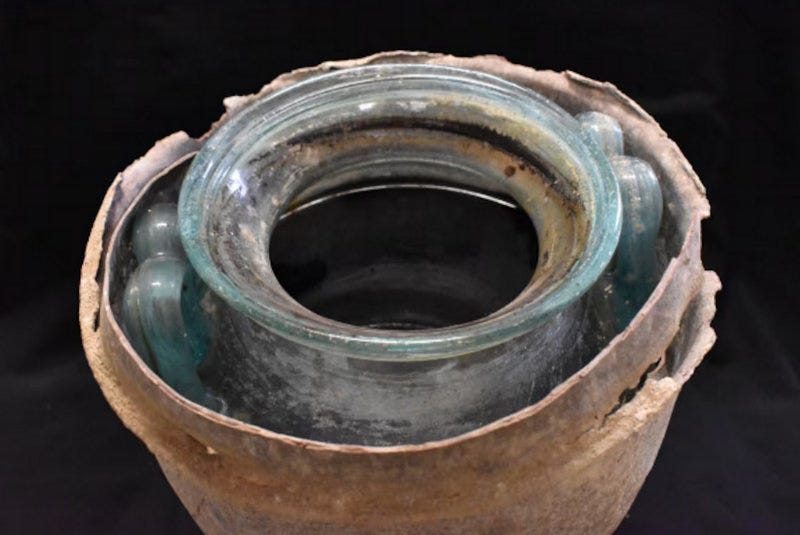
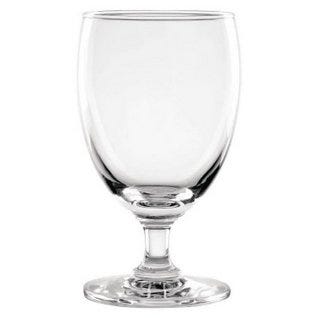
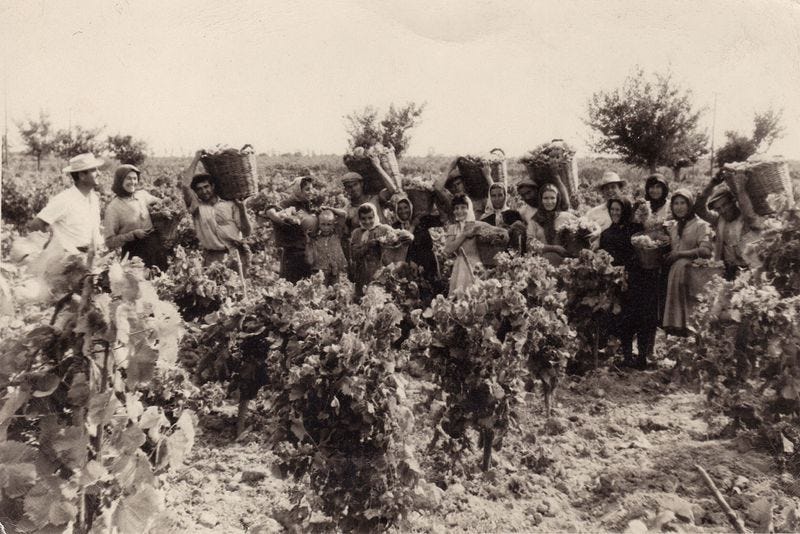
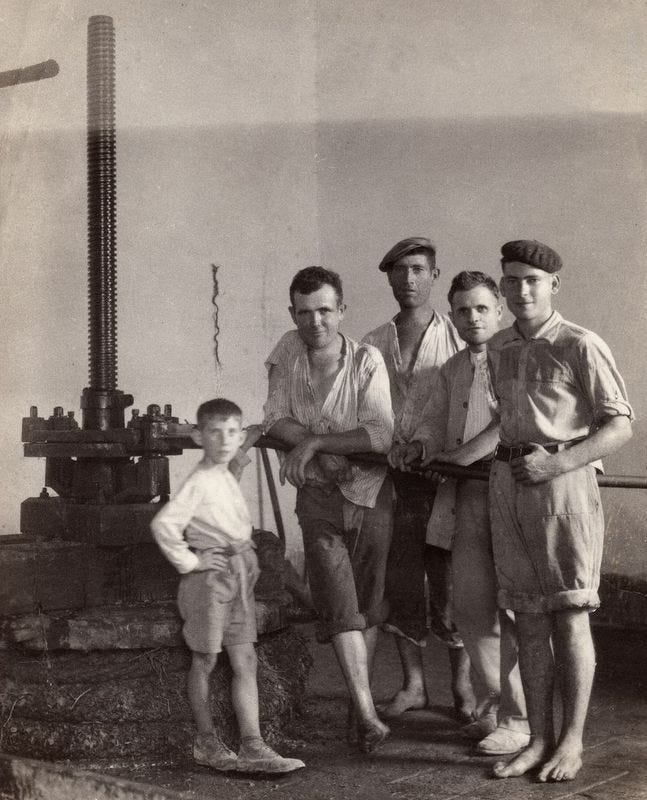
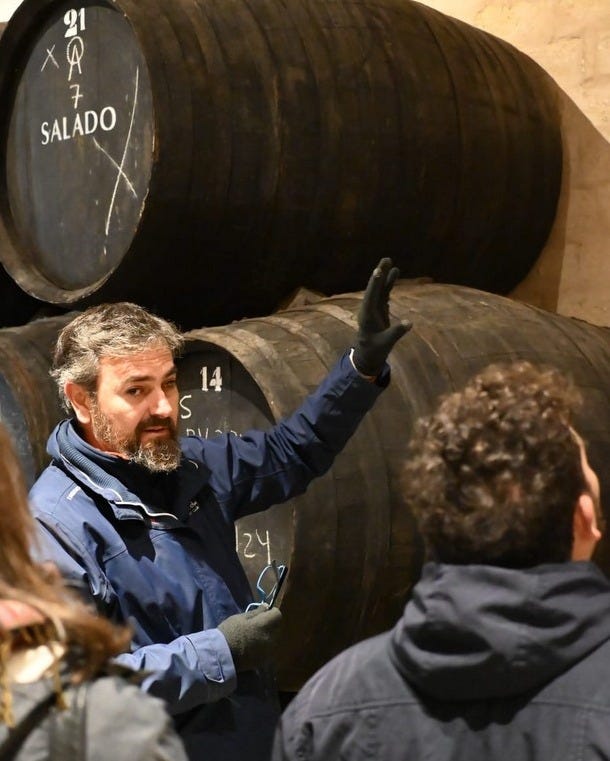
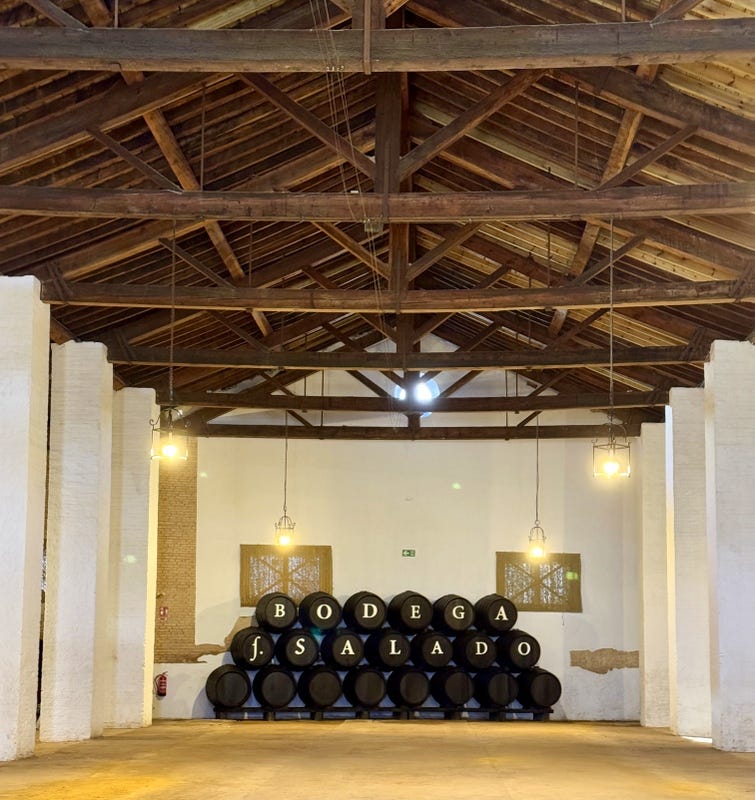
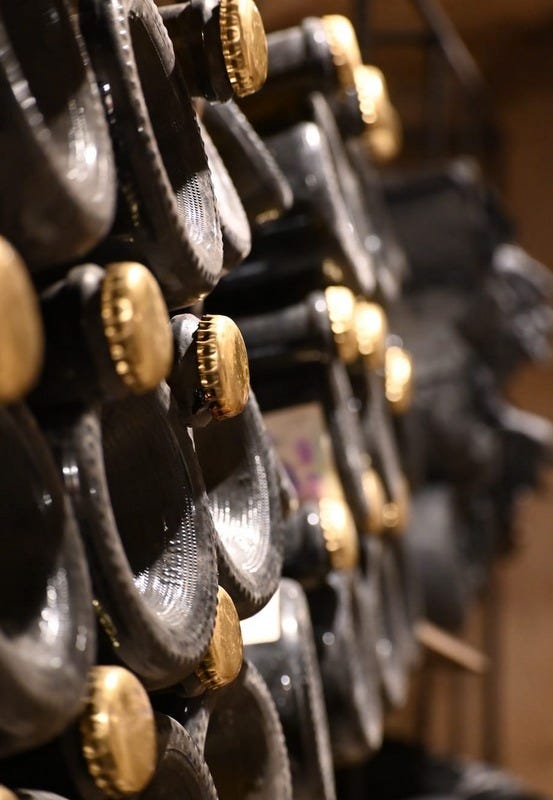
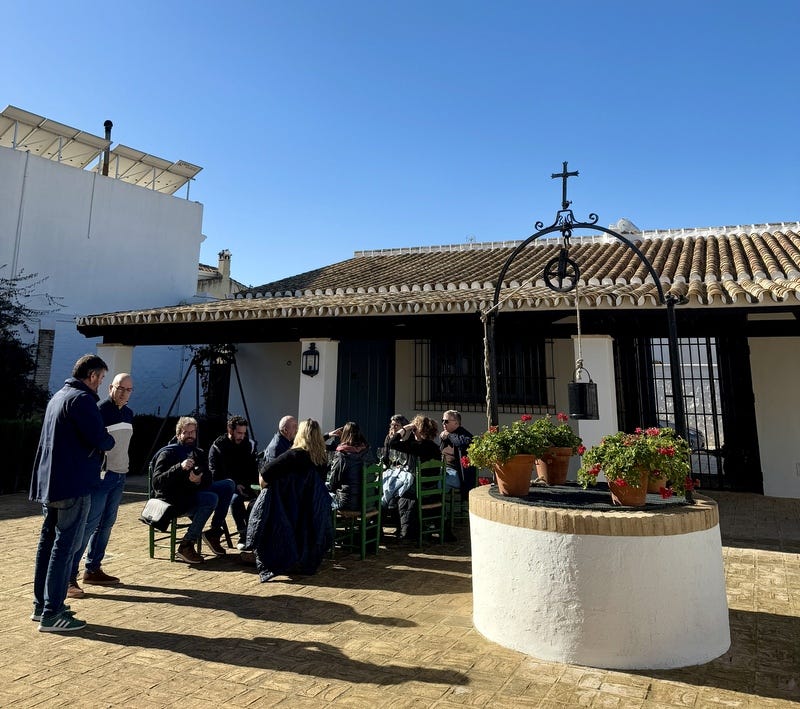
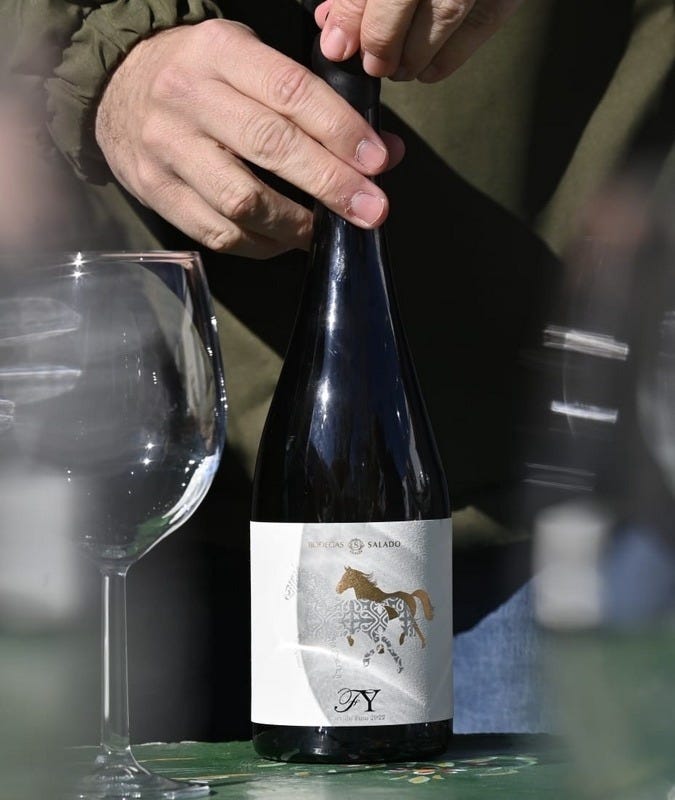
White wine in Seville - a welcome topic! It was a really interesting visit - I’ve also become a fan of Garrido Fino wines. Was it the Umbretum 1810 that was the sherry-ish one?.
Great write up. I love the Bajo Velo, and also their mosto!